Union General Ambrose E. Burnside
|
|
|
|
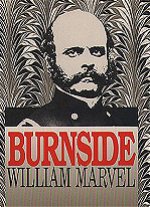
|
By 1860 Burnside was the company treasurer with an office in New York City. At the beginning of the Civil War, Burnside returned to Rhode Island to take command of a regiment of militia, which led to Washington in April 1861. At the Battle of First Bull Run on 21 July, Burnside was a colonel in command of a brigade and by early August had been promoted to brigadier general of volunteers. In early 1862 Burnside commanded an expedition against the North Carolina coast, where his troops captured Roanoke Island, New Berne, Beaufort, and Fort Macon. For these accomplishments he was promoted to major general in March 1862. In July Burnside's troops, plus troops from other commands, were organized into the IX Corps. During the Second Bull Run Campaign the IX Corps was attached to Pope's Army of Virginia, although Burnside himself remained near Fredericksburg. During the Maryland Campaign Burnside was briefly assigned command of a wing, which consisted of the I and IX Corps, in McClellan's army. Burnside had twice before been offered command of the Army of the Potomac, after the Peninsula and Second Bull Run Campaigns. Each time he had expressed that he did not feel competent to command such a large force. However, in early November President Lincoln relieved McClellan and Burnside reluctantly accepted the command. A month later he crossed his army to the south of the Rappahannock River but was defeated at the Battle of Fredericksburg on 13 December. In January 1863 Burnside attempted to launch another offensive campaign, known as the Mud March; poor weather conditions resulted in another failure. President Lincoln relieved him of command and transferred him to the Western Theater. While he was commander of the Department of the Ohio, his forces occupied East Tennessee and captured Knoxville. In 1864 Burnside was ordered back east, once again commanding the IX Corps, and participated in Grant's Overland Campaign in Virginia. He led his corps through the Battles of the Wilderness, Spotsylvania, and Cold Harbor and the operations against Petersburg. After the failed attack at the Battle of the Crater at Petersburg in July, Maj. Gen. George G. Meade charged Burnside with disobedience of orders. A court of inquiry found Burnside "answerable for the want of success," and in April 1865 he re signed from the Army. After the war Burnside was three-time governor of Rhode Island; from 1875 until his death, he served as a U.S. Senator. |
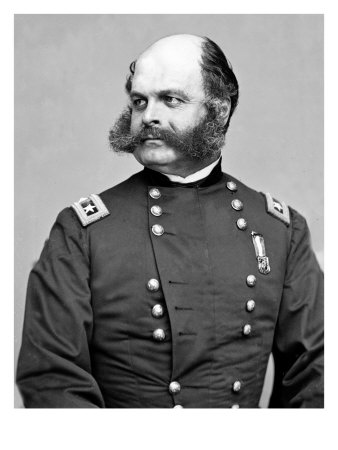
Union General Ambrose Burnside of Indiana 18 in. x 24 in. Buy at AllPosters.com Framed Mounted |
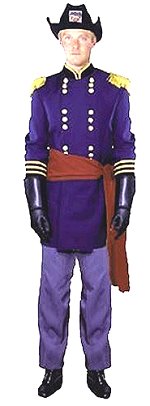 Adult Union Officer Uniform |
Kindle Available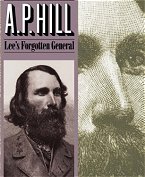 A. P. Hill: Lee's Forgotten General Biography of the Confederacy's long-neglected hero whom Lee ranked next to Jackson and Longstreet. Although the name and deeds ot this gallant Virginian conspicuously punctuate the record of every major campaign of the Army of Northern Virginia |
Kindle Available Robert E. Lee This book not only offers concise detail but also gives terrific insight into the state of the Union and Confederacy during Lee's life. Lee was truly a one of kind gentleman and American, and had Virginia not been in the south or neutral, he ultimately would have led the Union forces. |
Kindle Available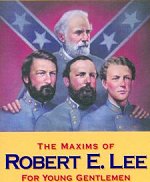 The Maxims Of Robert E. Lee For Young Gentlemen: Advice, Admonitions, and Anecdotes on Christian Duty and Wisdom from the Life of General Lee All his life, Robert E. Lee relied upon his faith for strength and guidance not only in troubled times, but also as the foundation upon which he based all of his dealings with others. |
Kindle Available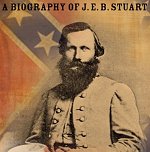 Cavalryman of the Lost Cause A Biography of J. E. B. Stuart James Ewell Brown Stuart was the premier cavalry commander of the Confederacy. He gained a reputation for daring early in the war when he rode around the Union army in the Peninsula Campaign, providing valuable intelligence to General Robert E. Lee at the expense of Union commander George B. McClellan |
Kindle Available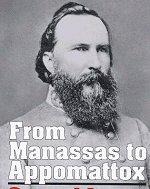 From Manassas to Appomattox General James Longstreet According to some, he was partially to blame for the Confederate defeat at Gettysburg; according to others, if Lee had followed Longstreet's advice, they would have won that battle. He has been called stubborn and vain; and he has been lauded as one of the greatest tacticians of the Civil War |
Kindle Available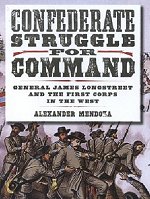 Confederate Struggle For Command: General James Longstreet and the First Corps in the West A comprehensive analysis of Longstreet's leadership during his seven-month assignment in the Tennessee theater of operations. Mendoza concludes that the obstacles to effective command faced by Longstreet had at least as much to do with longstanding grievances and politically motivated prejudices as they did with any personal or military shortcomings |
Kindle Available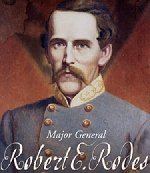 Major General Robert E. Rodes of the Army of Northern Virginia: A Biography The first deeply researched scholarly biography on this remarkable Confederate officer. From First Manassas in 1861 to Third Winchester in 1864, Rodes served in all the great battles and campaigns of the legendary Army of Northern Virginia |
Kindle Available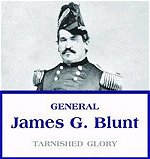 General James G. Blunt: Tarnished Glory General Blunt was an immensely successful leader. He and John Brown helped escaped slaves reach Canada; he led the defeat of Confederate troops at Fort Wayne, Prairie Grove, and Cane Hill. Also accused of corruption, womanizing, and egotistical tirades throughout his military career |
 In the Hands of Providence: Joshua L. Chamberlain and the American Civil War The professor-turned-soldier who led the Twentieth Maine Regiment to glory at Gettysburg, earned a battlefield promotion to brigadier general from Ulysses S. Grant at Petersburg, and was wounded six times during the course of the Civil War |
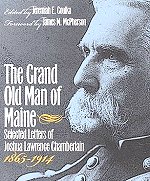 Selected Letters of Joshua Lawrence Chamberlain, 1865-1914 Known as the hero of Little Round Top and the commanding officer who accepted the Confederates' surrender at Appomattox. |
Kindle Available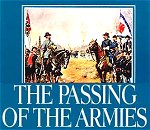 The Passing of Armies: An Account Of The Final Campaign Of The Army Of The Potomac The beginning of the final campaign of the Army of the Potomac against Confederate General Robert E. Lee and the Army of Northern Virginia. It was the spring of 1864 and General Grant had Lee and his army backing up toward what finally became the siege of Petersburg, Virginia. |
Kindle Available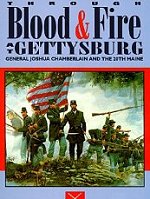 Through Blood and Fire at Gettysburg: General Joshua L. Chamberlain and the 20th Maine This book is based on the actual report written by Joshua Chamberlain after Gettysburg. It is full of photos and maps which helps to clarify positions and movements on the battlefield. Chamberlain's account are full of excellent insight and illustrations. |
Sources:
US Army
West Point
Federal Citizens
| Search AmericanCivilWar.com |
| Enter the keywords you are looking for and the site will be searched and all occurrences of your request will be displayed. You can also enter a date format, April 19,1862 or September 1864. |